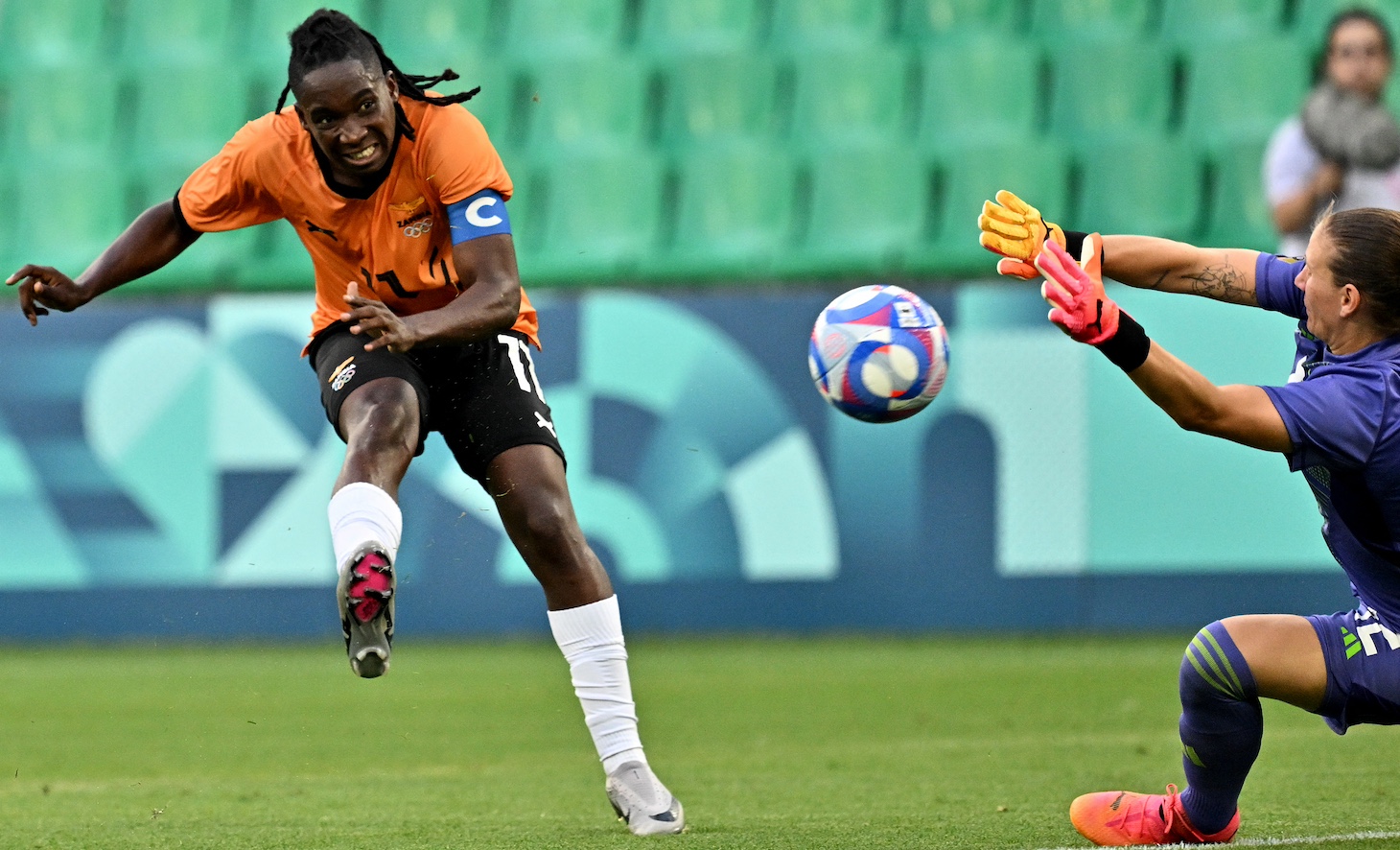Zambia's path to success at the Olympics was that there was no path to success. In theory, a team boasting forwards of Barbra Banda's and Racheal Kundananji's quality could hope that if those two stars played out of their minds, they might score enough goals to carry the team to victory. In reality, not even exceptional performances from the two truly regal Copper Queens could suffice, not when Zambia's defense offers about as much resistance to rival attacks as a microwaved block of Velveeta would offer an chainsaw. Sure enough, during the group stage Banda starred, the defense stank, and after the former couldn't prevent the latter from racking up three consecutive defeats, Zambia will now return home with the curious distinction of having arguably the tournament's best player while also being far and away its worst team.
No one could've reasonably expected anything more from Banda than what she provided. Through three games she scored four goals and added one assist, which ties her with France's Marie-Antoinette Katoto atop the tournament's most goal contributions chart. In fact, Banda alone contributed as many or more goals than what six entire teams managed to score during the group stage. Nobody took more shots than Banda's 17—and Kundananji's 13 shots rank third—which is especially noteworthy in light of the fact that Zambia's 29 percent average possession was the lowest at the Olympics. The greatest individual showing of the tournament so far is Banda's explosion against Australia, where she had a hat trick before half time and added an assist after the break in a wacky Gatling gun shootout that ultimately ended 6-5 in favor of the Aussies. Zambia's gameplan throughout the Olympics was simple: get the ball, immediately smash it somewhere in Banda's general vicinity, and see if she can make something happen more or less by herself. In spite of such an onerous task, Banda kept pulling rabbits out of her hat. With very little support, Banda and Kundananji routinely generated danger when they got on the ball. And yet all of it was for naught, because Zambia's defense was maybe the worst defense I've ever seen.
There was this thing that used to happen in recent-era FIFA games, where, if you were playing the computer in career mode or something and you were up a goal or two at the end of the game, the computer would enter this all-out, psychotically attacking mode. They'd send every single player forward either to attack or to chase down your player when you had the ball, which absolutely ruined any semblance of shape or organization of their back line. That meant at any given time you were at most two passes away from a 1-v-1 with the goalkeeper. The infuriating thing about this was that the computer was ruthlessly effective when switching to this tactic, where every defender would turn into prime N'Golo Kanté when tackling the ball off of you, which regularly led to late equalizers that made you want to chuck your controller through your TV. Zambia's defense is like if you took that late-game FIFA AI's disorganized defense, but if instead of turning into Kanté when it came time to make a challenge, they just stood around like Lionel Messi.
Almost every single one of the tournament-worst 13 goals Zambia conceded was the direct result of a glaring defensive error. Goalkeeper Ngambo Musole was probably the worst offender, gifting opponents a handful of goals with terrible decisions, awful positioning, and once letting a catchable ball slip between her gloves and into the back of her net. But the bad defending started way before the ball got to Musole. I've never seen a defense so regularly allow wide-open runs straight through the center of the field. Because of Banda's and Kundananji's heroics in the Australia game (the pair scored all five of their team's goals), Zambia was ahead on one scoreboard for almost 78 minutes. The Copper Queens even led by three goals at one point, after Kundananji's second goal made the score 5-2. However, at no point did it feel like Zambia's lead was safe; instead, for the entire match it seemed that as long as the Matildas kept pushing, they'd eventually find the goals they'd need to win. Such was how incompetent and suicidally disorganized Zambia's defense was all Olympics long.
The good news for the Copper Queens is that their soccer journey is not over, even if their tournament is. It's important to remember how far Zambian women's soccer has come in such a short amount of time, going from never qualifying for a major tournament before 2020 to then playing in those Olympics, the 2023 World Cup, and now the 2024 Olympics. The continental success the team has had is something to continue to build on, and Banda and Kundananji alone prove that the talent is there, just waiting to be discovered and nurtured.
Banda and Kundananji are both only 24 years old. Their futures will include more major tournaments, more goals (Banda now has an utterly ridiculous 10 Olympic goals in six games across the Paris and Tokyo editions), and more opportunities to push Zambia even further than they've gone so far. Zambia has time to hire a coach who isn't a nightmare, cultivate some new players who can improve on the defensive shortcomings of the current group, and bring a squad to the next big stage that can do justice to Banda's and Kundananji's talents. The 2024 Olympics were surely painful, but it should be the kind of pain that leads to gains next time around.






